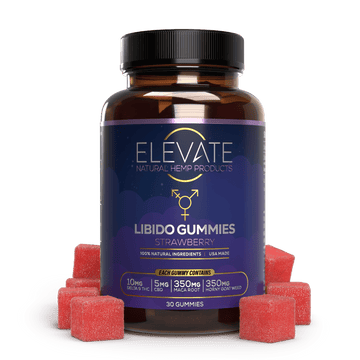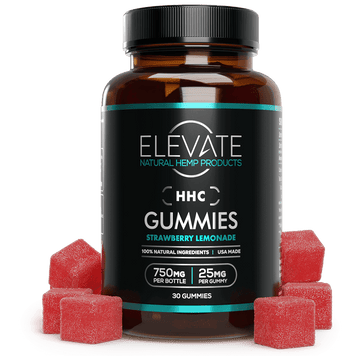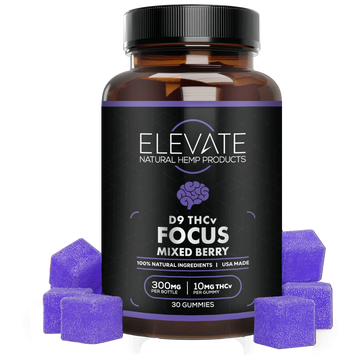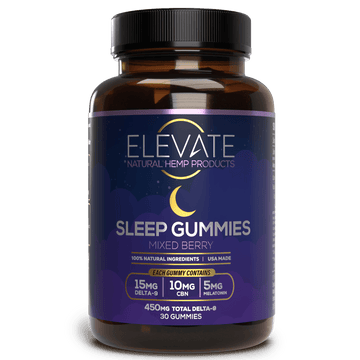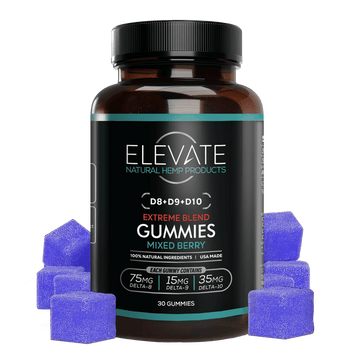THCa vs THC: Understanding The Differences And Similarities

Quick Summary
THCa is non-psychoactive until heated—then it becomes THC. This guide breaks down the chemical differences, how decarboxylation works, legal distinctions under federal hemp law, and which compound fits your preferences.
Table of Contents
- Introduction to Cannabis Compounds
- What is THCa in the cannabis plant?
- But, What's THC?
- Chemical Structure and Composition
- How is THCA converted into THC?
- THC vs THCa – What's The Difference?
- Cannabis Products and Labeling
- Consumption Methods and Effects
- Drug Tests and Detection
- Side Effects and Risks
- Medical Marijuana and THCA
- How Does THCa Interact With The Human Body?
- Which is Better: THC vs THCa?
Understanding the differences between THCA and THC is crucial to enhancing your overall cannabis experience. Each of these compounds has its unique effects and benefits, which can significantly influence how you feel after consumption. By being more informed about the benefits of THC and THCA, you can tailor your cannabis use to your personal needs and preferences, allowing for a more tailored and enjoyable experience. In this article, we will explore the key differences between THCA and THC to help you make informed choices.
We believe knowledge is power – especially when it comes to navigating the ever-evolving cannabis landscape. It’s our mission to equip you with the information you need to make the best decisions about your cannabis consumption.
Introduction to Cannabis Compounds
Cannabis plants are a treasure trove of unique compounds that contribute to their effects, flavors, and aromas. Among the most important of these are cannabinoids, a group of chemicals that interact with the human body in fascinating ways. For cannabis consumers, two cannabinoids stand out: THCA (tetrahydrocannabinolic acid) and THC (tetrahydrocannabinol).
THCA is a non psychoactive compound found in abundance in freshly harvested cannabis. In its raw form, it doesn’t produce the “high” typically associated with marijuana use. Instead, THCA is valued for its potential benefits and is often present in cannabis products designed for wellness without intoxication. On the other hand, THC is the primary psychoactive compound in cannabis, responsible for the euphoric effects that many users seek.
The relationship between THCA and THC is a fascinating one. THCA converts into THC through a process called decarboxylation, which occurs when cannabis is heated, dried, or cured. This transformation is what unlocks the psychoactive potential of cannabis products. Understanding how THCA and THC differ—and how they interact with the body—can help cannabis consumers make informed choices and find the products that best suit their needs.
What is THCa in the cannabis plant?
THCA, or Tetrahydrocannabinolic Acid if you want to get scientific, is the raw, non-psychoactive primary cannabinoid only found in live and undried cannabis plants. This means if you were to nibble on a fresh cannabis leaf (not that we’re recommending it!), you’d primarily consume THCA, not THC. Interesting, right? THCA is known as the acidic precursor to THC, meaning it naturally exists in cannabis before being converted to THC through decarboxylation.
The hemp plant is a natural source of THCA, containing high levels of THCA that can be extracted with minimal processing compared to other cannabinoids.
This compound is a powerhouse in its own right. Contrary to what many believe, THCA doesn’t just sit idly by, waiting to become THC. It has distinct properties that have sparked some fascinating research in the scientific community. Research suggests that it’s been studied for its potential anti-inflammatory, neuroprotective, and anti-emetic properties among other cannabinoids. Impressed yet? There’s more!
The key thing to remember about THCA is that it’s not intoxicating. You heard that right. THCA won’t give you that high or psychoactive effect we typically associate with consuming cannabis. It’s like the Clark Kent to THC’s Superman. This is because THCA molecules have a different structure from THC, preventing them from binding to the body’s cannabinoid receptors in the same way THC does. This doesn’t make it any less important though.
But, What's THC?
If you’re familiar with the euphoric effects typically associated with cannabis, you’ve got the psychoactive cannabinoid THC to thank for it. This compound, derived from the marijuana plant, is the superstar ingredient that gives cannabis its reputation for producing a psychoactive high.
THC comes from the raw acidic form, THCA, which when exposed to heat (a process known as decarboxylation), converts into THC. You might have heard about THC in the context of smoking or vaping, but it’s also found in a variety of other forms, from edibles and tinctures to oils and capsules.
You might be wondering, “Why does this matter?” Well, the type of THC and how it’s produced can influence the experience you have with our products. Here at Elevate, we offer a range of products with both Delta-8 and Delta-9-THC, allowing you to choose what suits you best. The actual potency of these products can vary depending on the specific product, individual tolerance, and method of consumption.
The effects of THC aren’t just about feeling good, though. This potent compound can also offer wellness benefits. According to somestudies, THC has been found to help with conditions like chronic pain, insomnia, and nausea, making it a valuable component in the cannabis market. It’s also known for appetite stimulation – anyone familiar with the ‘munchies’ phenomenon?
Chemical Structure and Composition
When it comes to understanding THCA and THC, their chemical structure is at the heart of what sets them apart. THCA, or tetrahydrocannabinolic acid, is found in abundance in freshly harvested cannabis plants. THCA and other cannabinoids occur naturally in both cannabis and hemp plants. Its structure includes a carboxylic acid group (COOH), which is responsible for its non psychoactive properties. This means that in its raw form, THCA doesn’t produce the psychoactive effects that many associate with cannabis use.
However, when THCA is exposed to heat or allowed to age, it undergoes a process called decarboxylation. During this chemical reaction, the carboxylic acid group is removed, and THCA converts into THC—the primary psychoactive compound in the cannabis plant. This transformation is what gives THC its ability to interact with the body’s cannabinoid receptors and produce intoxicating effects.
For cannabis consumers, understanding the chemical structure and composition of THCA and THC is essential. It helps explain why raw cannabis or products high in THCA are non psychoactive, while those containing THC deliver the classic cannabis high. Whether you’re interested in the non psychoactive nature of THCA or the psychoactive properties of THC, knowing how these cannabis compounds differ at the molecular level empowers you to make informed choices about your cannabis experience.
How is THCA converted into THC?
So how does THCA become the THC we’re more familiar with? Well, it involves a little bit of heat and some chemistry magic in a process called decarboxylation. Decarbox-what, you ask? Don’t worry, we’ll break it down for you.
Decarboxylation, our fancy science term for the day, is a critical process in the world of cannabis. To put it simply, it’s the process that transforms the non-intoxicating compound THCA into THC. THCA turns into THC when exposed to heat, which is why this step is so important.
Picture it this way: THCA is like a locked box, and heat is the key that unlocks it to reveal the ‘gift’ inside – THC. But what’s going on under the hood, you ask?
Well, the THCA molecule contains an extra carboxyl group – it’s this group that prevents it from fitting into the receptors in our bodies that would give us that familiar cannabis effect. When we apply heat, a process of decarboxylation takes place, which effectively ‘burns off’ this extra group. This transformation is kind of like our THCA molecule going on a diet, losing a little bit of weight, and becoming THC!
When you smoke or vape, the heat from your lighter or vaporizer is doing this job. The flame causes the raw cannabis flower to heat up, triggering decarboxylation, and voila – you’ve got THC. This is the point where THCA turns into THC, making the cannabis psychoactive.
But what about when you’re consuming raw cannabis and not smoking or vaping? For edibles, tinctures, and topicals, the cannabis has to be decarboxylated before it’s used in the product. In these cases, the raw cannabis is usually heated in an oven to a specific temperature for a certain length of time to ensure all the THCA has been converted to THC. These preparation methods are used to transform THCA into THC before consumption, making sure you get the desired effects. It’s a bit like prepping the ingredients for a meal – this ‘baking’ process activates the THC, ensuring it’s ready to provide its effects when consumed.
Understanding this process is really about understanding the care that goes into making cannabis products. We’re meticulous about this decarboxylation process, ensuring our products offer the expected effects, whether you’re enjoying our Delta 8 carts or Delta 9 THC gummies.
THC vs THCa – What's The Difference?
THC and THCA may sound similar, but they offer different experiences due to their distinct characteristics, including differences in chemical structure, effects, and legality. Here’s a comparison to understand them better:
THC differ from THCA in that THC is psychoactive and produces a "high," while THCA is non-psychoactive until it is decarboxylated. Additionally, THC is often subject to stricter legal regulations compared to THCA.
1. Potency
THC and THCA differ greatly in potency due to their chemical structures. THCA is the natural, raw compound found in the cannabis plant, which is non-intoxicating and won’t produce the euphoric effects commonly associated with THC. However, as discussed earlier, when THCA is decarboxylated, or heated, it transforms into THC, unlocking its potent psychoactive potential. For those seeking a more intense, euphoria-inducing experience, THC is the go-to psychoactive compound here. It's important to note that the actual potency experienced can vary significantly depending on the consumption method and an individual's tolerance, which affects the real-world effects and safe dosing of cannabis products.
2. Usage
THC’s popularity is largely tied to its psychoactive properties, making it a favorite for both recreational and therapeutic applications. Its psychoactive effects, ranging from a sense of relaxation to heightened sensory perception, contribute to its widespread use for medical or recreational use. THCA, though non-psychoactive, is not without its applications. Consumed in its raw form, such as in cannabis juices or salads, THCA is believed to offer wellness benefits by some users, making it an interesting area for further exploration and study. THCA products, including THCA pre rolls and topical forms, provide additional options for consumers seeking different methods of consumption.
THCA carts are rapidly gaining popularity as hemp-derived vapor products, offering a convenient and accessible alternative to traditional cannabis consumption methods. These THCA carts are designed for use with vape pens and become psychoactive after heating, making them appealing for those seeking a discreet and efficient experience. A THCA cart is a cartridge filled with THCA distillate, and when selecting a THCA cart, consumers should consider factors such as potency, lab testing, and compatibility with their vape device.
A wide variety of THCA products are available online, including THCA distillate for vaping, THCA flower, and edibles. It is important to review detailed product descriptions and safety considerations to ensure a safe and informed purchase.
When considering product variety, hybrid strains are also available, offering a balanced combination of effects for diverse preferences.
3. Legality
Navigating the legal landscape of THC and THCA can be complex as regulations vary significantly worldwide. The legal status and legal statuses of THC and THCA differ based on federal and state laws, with each cannabinoid subject to unique regulatory classifications. Broadly, THC, specifically Delta-9-THC, encounters more regulatory restrictions due to its psychoactive nature. Nevertheless, it is legal for recreational use in many jurisdictions. However, as the level of Delta-9-THC increases, so do regulatory restrictions. Cannabis with less than 0.3% Delta-9-THC is legally defined as hemp at the federal level in the U.S., making it legally permissible.
On the other hand, THCA, being non-psychoactive, often bypasses these stringent laws. Yet, the legal definition of hemp applies to the THCA content as well. Hemp derived THCA and THCA derived from hemp are significant because they allow for legal access to cannabinoid products in regions where cannabis from the marijuana plant remains illegal. Therefore, if a product, regardless of whether it’s sourced from THCA or THC, maintains less than 0.3% Delta-9-THC, it’s classified as hemp and remains federally legal. It’s crucial to keep in mind that certain states may have specific laws surrounding THCA, rendering it illegal regardless of its source. As always, understanding and following local laws is essential.
4. Benefits & Effects
THC is renowned for its effects, delivering feelings of euphoria, relaxation, and heightened senses. These properties have made THC a valuable component in the realm of personal relaxation and wellness practices. Additionally, THC is widely used for pain relief and is a key compound in medical marijuana treatments, where it is utilized for its therapeutic benefits.
In contrast, THCA may not offer the same effects as of THC, but it is appreciated by cannabis consumers for different reasons. Some users believe that consuming THCA, especially in raw forms, can contribute to overall wellness. However, the scientific understanding of these potential benefits is still emerging. As more research unfolds, we anticipate gaining deeper insights into the potential wellness applications of THCA.
Cannabis Products and Labeling
The world of cannabis products is more diverse than ever, with options ranging from THCA vapes and THCA flower to THCA gummies and traditional THC products. As a cannabis consumer, it’s important to pay close attention to product labels, which typically indicate the percentage of THCA and THC content. This information can help you choose the right product for your desired effects and experience.
Some cannabis products are formulated to highlight the benefits of THCA, offering a non psychoactive option for those seeking wellness without the high. Others may contain both THCA and THC, or focus solely on delivering the psychoactive effects of THC. For example, THCA vapes and THCA flower are popular among those who want to explore the unique properties of THCA, while THC products are often chosen for their euphoric effects.
Labeling is regulated by state and federal laws to ensure transparency and consumer safety. Always check the THC content and THCA percentage before purchasing, and be aware that some products may be labeled as hemp-derived if they meet the legal threshold for THC. By understanding the differences between THCA and THC on product labels, cannabis consumers can make choices that align with their preferences and needs.
Consumption Methods and Effects
How you consume THCA and THC can have a big impact on your experience. There are a variety of consumption methods available, including smoking, vaping, edibles, and topicals. Each method can influence the onset, intensity, and duration of psychoactive effects.
In its raw form, THCA is non psychoactive, so consuming raw cannabis or products high in THCA won’t produce a high. However, when THCA is heated—such as through vaping THCA or smoking THCA flower—it transforms into THC, unlocking its psychoactive potential. Vaping THCA, for instance, can deliver fast-acting and potent effects, while eating THCA gummies may result in a slower, more gradual onset.
It’s important for cannabis consumers to consider their preferred consumption method and how it may affect the experience. Whether you’re seeking the non psychoactive benefits of raw THCA or the psychoactive effects of THC, understanding how different products and methods work can help you use cannabis products safely and effectively.
Drug Tests and Detection
For cannabis consumers who may be subject to drug tests, understanding how THCA and THC are detected is crucial. Abstaining from cannabis use before a routine drug test is important to avoid detection, as both THC and its metabolites, including those derived from THCA, can be identified. Standard drug tests are typically designed to identify THC or its metabolites, as THC is the psychoactive cannabinoid most commonly associated with marijuana use. THCA itself is not usually detected in these tests, but because THCA can convert into THC in the body or during the testing process, there is still a risk of a positive result.
The detection window for THC can vary widely, from a few days to several weeks, depending on factors like frequency of use, dosage, and individual metabolism. Some drug tests may not distinguish between THCA and THC, which can sometimes lead to false positives or negatives. If you are concerned about drug tests, it’s important to be aware of the potential for THCA and THC to be detected and to take appropriate precautions.
Side Effects and Risks
While THCA and THC both come from the same cannabis plant, their side effects and risks can differ. THCA is generally considered safe and non psychoactive, but in rare cases, some individuals may experience mild side effects such as drowsiness or stomach discomfort, especially when consuming high amounts or certain THCA products.
THC, as the primary psychoactive compound in cannabis, is associated with a broader range of side effects. These can include anxiety, paranoia, impaired memory, and changes in perception. The risks of THC products also include the potential for dependence, increased heart rate, and elevated blood pressure, particularly with frequent or high-dose use.
Cannabis consumers should always consider their own tolerance, the consumption method, and the specific product they are using. Following recommended dosages and guidelines can help minimize risks and ensure a positive experience with both THCA and THC. As with any cannabis compounds, moderation and informed decision-making are key to maximizing benefits and reducing unwanted effects.
Medical Marijuana and THCA
Medical marijuana has opened new doors for those seeking relief from a variety of health conditions, including chronic pain, nausea, and inflammation. While THC is well-known for its therapeutic effects, THCA is gaining attention for its own unique potential benefits. Unlike THC, THCA does not produce psychoactive effects, making it an appealing option for patients who want the benefits of cannabis without the high.
Research into THCA suggests it may offer anti-inflammatory and neuroprotective properties, which could be valuable for managing symptoms of certain medical conditions. As a result, THCA products—such as THCA flower and THCA vapes—are becoming increasingly popular among medical marijuana users. These products allow patients to explore the potential benefits of THCA while avoiding the intoxicating effects of THC.
It’s important to note that while early studies are promising, more research is needed to fully understand the therapeutic potential and safety of THCA. Cannabis consumers interested in using THCA or any cannabis products for medical purposes should consult with a healthcare professional to ensure safe and effective use. Additionally, the legal status of THCA and THC can vary depending on where you live, so always check local regulations before purchasing or using medical marijuana products.
How Does THCa Interact With The Human Body?
Understanding how THCA interacts with the human body involves getting into the world of endocannabinoids, receptors, and the human body’s complex signaling systems. THCA is found in cannabis buds and occurs naturally in the plant, where it is a precursor to THC. While research on THCA is still emerging, we can piece together some of the puzzle based on current understanding.
Let’s talk about the endocannabinoid system (ECS). This system plays a critical role in maintaining the body’s internal balance, or homeostasis, by regulating processes such as mood, appetite, sleep, immune response, and more. It’s made up of endocannabinoids (cannabis-like substances our bodies naturally produce), enzymes, and receptors known as CB1 and CB2 receptors.
Cannabinoids, including both THC and THCA, interact with this system. However, they do so in very different ways. THC has a strong affinity for CB1 receptors, primarily found in the brain and central nervous system. This connection triggers the well-known effects of THC.
THCA, on the other hand, doesn’t bind directly with either CB1 or CB2 receptors, which might initially seem like it has no interaction with the ECS. However, evidence suggests that it might influence the ECS indirectly. One possible interaction is through inhibiting certain enzymes responsible for breaking down endocannabinoids, thereby enhancing the levels of these naturally occurring compounds in the body. This action could potentially modulate ECS activity and contribute to various physiological effects.
Research indicates that THCA might interact with other non-ECS receptors and channels in the body, such as the PPARγ receptors involved in metabolism and inflammation, and TRPA1 channels that are implicated in pain and inflammation signaling.
So, while THCA may not interact with major cannabinoid receptors in the human body in the same direct manner as THC, it may influence our bodily systems in more subtle, yet significant ways.
Which is Better: THC vs THCa?
Wrapping up our exploration into the world of THC and THCA, it becomes clear that the choice between these two fascinating compounds depends largely on the experiences you seek.
If your aim is to experience the effects that have made cannabis famous, THC is likely the compound for you. On the other hand, if you’re intrigued by the potential wellness benefits of cannabis but prefer to steer clear of other aspects, THCA is a non psychoactive cannabinoid that could be a great fit for your needs. THCA is considered 'thca safe' for those seeking non-intoxicating cannabis options.
Here at Elevate, we appreciate that every individual’s journey with cannabis is distinct. Whether you’re drawn to the calming influence of THC or the subtle wellness potential THCA might offer, our aim is to empower your exploration and deepen your understanding of these incredible compounds.
Our commitment is to guide and support you every step of the way on this unique journey of discovery. In the end, the choice between THCA and THC isn’t about better or worse—it’s about what aligns with your personal preferences and your wellness journey.
Join Our Newsletter
Sign up to be the first to know about our can't-miss product drops, special VIP offers & exclusive discounts.

